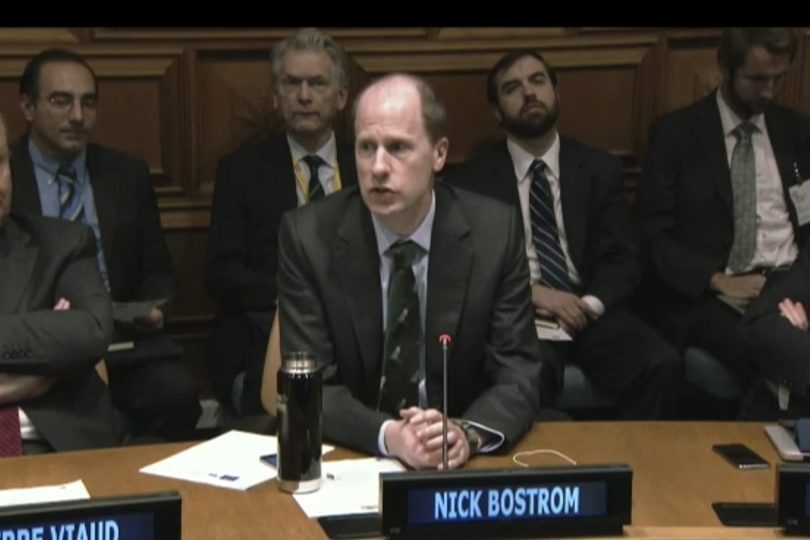
Professor Nick Bostrom briefed political representatives from around the world on the national and international security risks posed by artificial intelligence and other future technologies at a UN event last week.
Professor Bostrom, Director of the Future of Humanity Institute, Oxford Martin School, was invited to speak at a special side event examining the challenges posed by chemical, biological, radiological and nuclear (CBRN) materials and weapons, held during the UN's 2015 General Assembly meeting.
The event was organised by Georgia's UN representatives, in collaboration with the United Nations Interregional Crime and Justice Research Institute (UNICRI), with the aim of understanding the implications of new technologies, ensuring responsible development and mitigating against misuse.
Georgia, with the support of UNICRI, was the first country to develop a CBRN National Action Plan, now approved and adopted by its government.
Professor Bostrom told the meeting that the risks arising from human activity posed a far bigger threat to humanity's future over the next century than natural disasters.
"All the really big existential risks are in the anthropogenic category," he said. "Humans have survived earthquakes, plagues, asteroid strikes, but in this century we will introduce entirely new phenomena and factors into the world. Most of the plausible threats have to do with anticipated future technologies."
- Watch Professor Bostrom's briefing (starts 2:14:30)